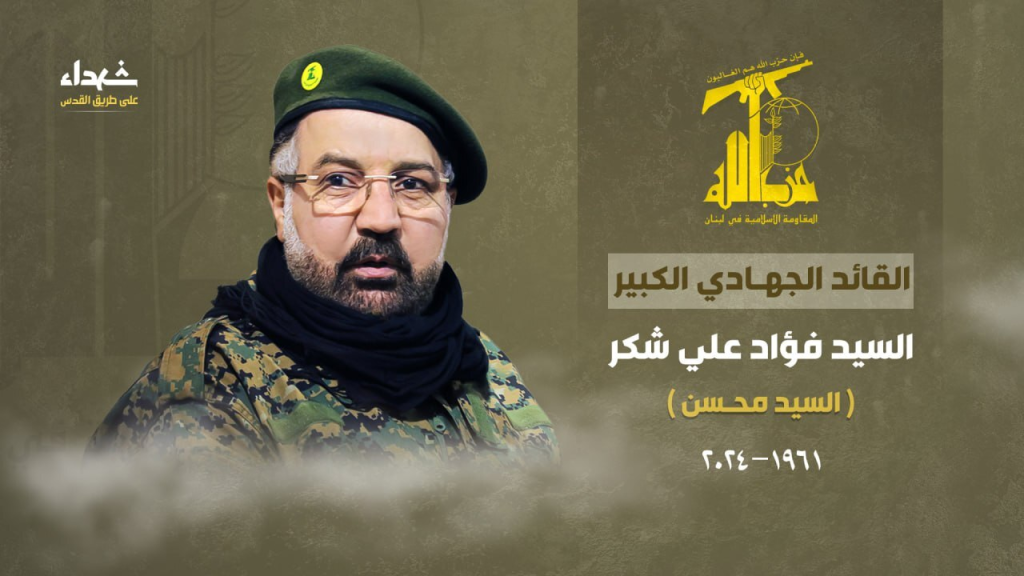Hezbollah confirmed the death of its “No. 2” commander, Fuad Shukr, following an IDF strike on Beirut. Shukr had a history that included orchestrating the 1983 U.S. Marine barracks bombing in Beirut, which resulted in the deaths of 241 U.S. military personnel and the injury of 128 others. Initially, Hezbollah did not confirm Shukr’s death but later announced it on the group’s Telegram account. The IDF strike on Shukr was in response to an attack that killed a dozen Israeli youths in the Golan Heights over the weekend, an attack that Hezbollah denies any involvement in. Shukr’s death marked the most senior Hezbollah death in nearly a year, and the IDF identified him as the mastermind behind the attack in the Golan Heights.
Israeli Defense Minister Yoav Gallant praised Shukr’s death, stating that it demonstrated the price of Israeli blood and that their forces would pursue those responsible. The strike on Shukr is said to have been designed to hinder, rather than destroy, Lebanese Hezbollah, thereby increasing the operating costs for the Iran-backed terror group in Lebanon. The strike also reportedly killed a woman and two children, leading to increased tensions between Hezbollah and Israel. The U.S. State Department issued a level 4 advisory for Lebanon, urging Americans to avoid travel there due to the rising tensions between Hezbollah and Israel.
Despite the escalating tensions, the United Nations warned against further escalation between Hezbollah and Israel, emphasizing the need to focus on retrieving hostages and increasing humanitarian aid in Gaza. The Secretary-General urged all parties to show maximum restraint and work towards regional de-escalation in the interest of long-term peace and stability for all in the region. The international community was called upon to prevent actions that could push the Middle East into further turmoil, with devastating consequences for civilians. The situation in Lebanon remains precarious, with the potential for further violence between Hezbollah and Israel remaining a concern for the international community.
Behnam Ben Taleblu, a senior fellow at the Foundation for Defense of Democracies, highlighted Shukr’s role as a man with American and Israeli blood on his hands, serving Hezbollah in various capacities such as a terrorist, engineer, intelligence officer, and believer in the group’s anti-Israel and anti-American cause. Shukr’s death is seen as a significant blow to Hezbollah, impacting its operations and ability to carry out attacks. The IDF strike was aimed at raising the cost of Hezbollah’s actions in Lebanon and sending a message that there are consequences for attacks against Israel.
The death of Fuad Shukr, Hezbollah’s “No. 2” commander, has sparked fears of further violence and retaliation between Hezbollah and Israel, with the United Nations calling for restraint and de-escalation. The strike on Shukr was a response to escalating tensions between the two sides, marked by attacks and counterattacks. The situation in Lebanon remains volatile, with the potential for hostilities to escalate further. The international community has been urged to intervene and prevent actions that could lead to a wider conflict in the Middle East, with devastating consequences for civilians in the region.


